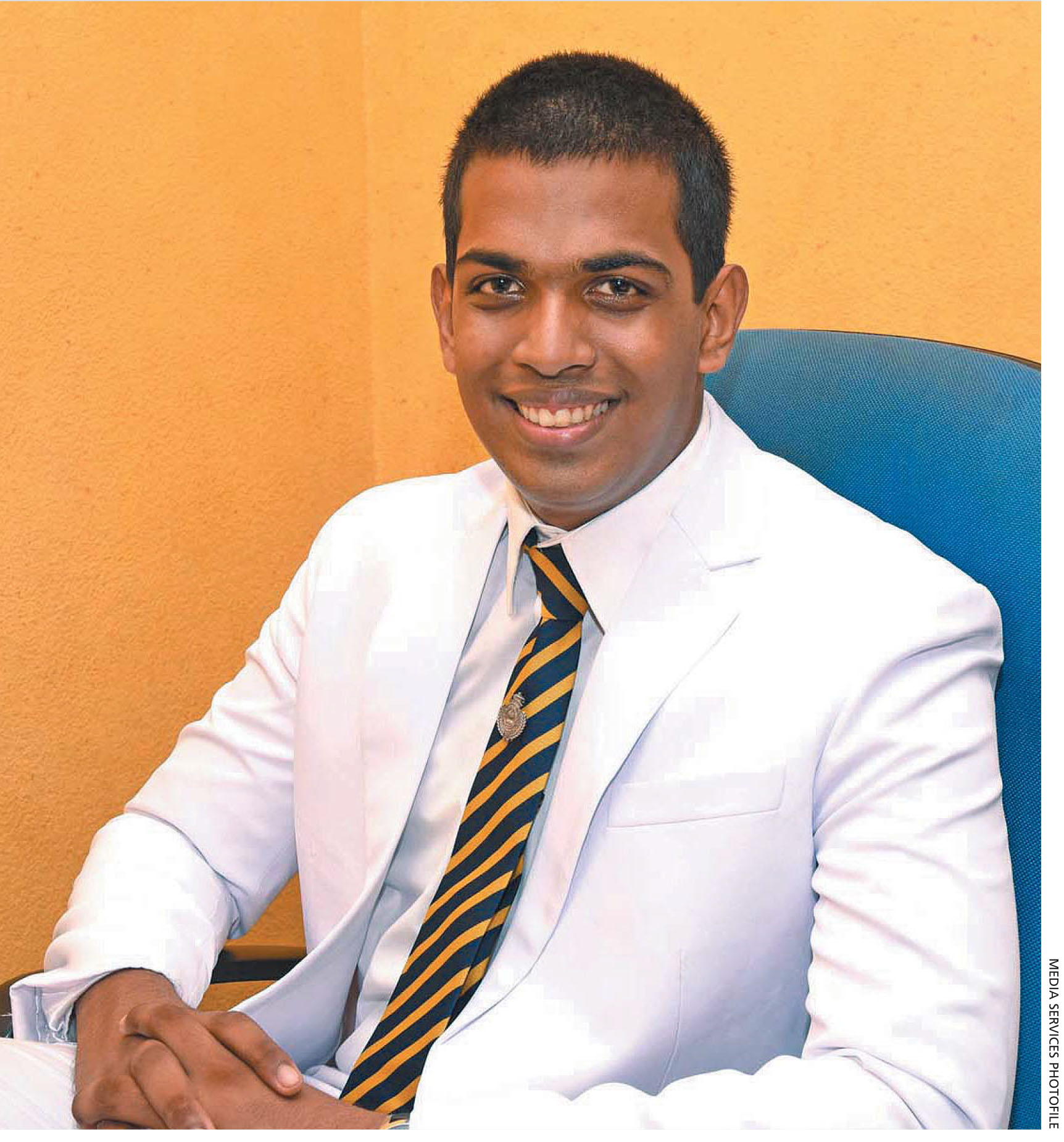YOUTH FORUM
GOING AGAINST THE GRAIN
Senith Abeyanayake commends youth who challenge conventional norms
Compiled by Savithri Rodrigo
Q: What’s the good, bad and ugly in Sri Lanka?
 A: The good is the country’s inspiring history, rich culture and amazing natural diversity; the bad is the individual pride and superficial differences that affect national unity; and the ugly is the rampant corruption and discrimination that exists.
A: The good is the country’s inspiring history, rich culture and amazing natural diversity; the bad is the individual pride and superficial differences that affect national unity; and the ugly is the rampant corruption and discrimination that exists.
Q: What opportunities do you see for young Sri Lankans such as yourself?
A: The biggest opportunity is the culture shift that is instrumental in buoying all forms of art and expression, with the various platforms for individual expression and forums of discussion helping young people explore new lines of thinking.
Digitalisation and international exposure promote the performing arts as a career path, creating opportunities to establish small-scale service oriented businesses, exciting innovations and start-ups in the arts.
One example is the fusion of traditional arts with modern trends, creating hybrid art genres. For example, Bailatronic (a hybrid of traditional papare and EDM) has made its way to the Billboard Charts. They create demand, add a new dimension to the market, and promote our culture and country across the globe. But we must understand the features that must be preserved in traditional art forms, while moving on to the contemporary.
 Q: Do we have young leaders who can take the country forward? And what traits do you want to see in them?
Q: Do we have young leaders who can take the country forward? And what traits do you want to see in them?
A: There’s a wave of politically and socially motivated youth who challenge conventional thinking, and we’ll see a group of young leaders who will push this country to rethink its path and adapt to the new age.
Policymakers should identify this, and generate interest and opportunities for the youth to engage in at grass-roots level discussions and in decision-making.
I would like to see honesty in our leaders. The prevalent competition compels people to hide their true feelings and intentions.
Q: Do you believe that Sri Lanka will be united one day?
A: We are in the process of reconciliation, in the aftermath of a war of nearly three decades. What is crucial is to avoid irreversible decisions that could divide the country to the point of no return, before the reconciliation process is completed. If we avoid this, through time and a proper process of reconciliation, our cultures and ethnicities can coexist.
We have the potential to be a truly reconciled society – one which can have rational discussions, acknowledging, understanding and respecting differences, while compromising when needed.
Q: Where do you see yourself in 10 years’ time?
A: I see myself being happy about the life I’ve created, and making it worthwhile.
Q: Who are today’s pragmatic leaders, in your view?
A: German Chancellor Angela Merkel is a dominant political force, who has succeeded in incisive decision-making at crucial times. She has shattered stereotypes, and inspired positive change in many areas. Indian Prime Minister Narendra Modi has also taken tough decisions, and transformed India into a global force.
Pope Francis has ushered Catholicism into the new generation, amid the monumental task of balancing religion with modern culture, striving to establish and enforce global peace.
Business magnate and innovator Elon Musk, the Co-founder of Google Larry Page and Facebook trailblazer Mark Zuckerberg are the driving forces of innovation and the technological revolution, making digitisation a part of our daily lives.
As unequivocal voices of reason and justice, Bono and Oprah Winfrey use the performing arts to inspire, change and educate nations, while unconventional entrepreneur Sir Richard Branson has inspired millions to dream big and follow their passion.
Q: Who is responsible for climate change and global warming?
A: From development-driven governments and profit-making multinationals, right through to ignorant citizens… everyone is responsible.
Since environmental issues are indefinite, unpredictable and indirect, people don’t realise their gravity. Although numerous local and global institutions are spreading awareness, due to the complexity of the consequences, people generally think climate change is irrelevant or unavoidable.
It takes brave steps by governments everywhere, to enact precise and stringent laws and policies to combat pollution, even at the risk of slowing down development and reducing profitability. If not, we may not even be guaranteed basic quality of life on Earth.
Q: Where do you see the world in 2025?
A: The world will regret all the present and past decisions it has made on both the environment and warfare, as these decisions are irreversible and destructive. In our journey into the future, I don’t foresee sufficient change to avoid this outcome.



